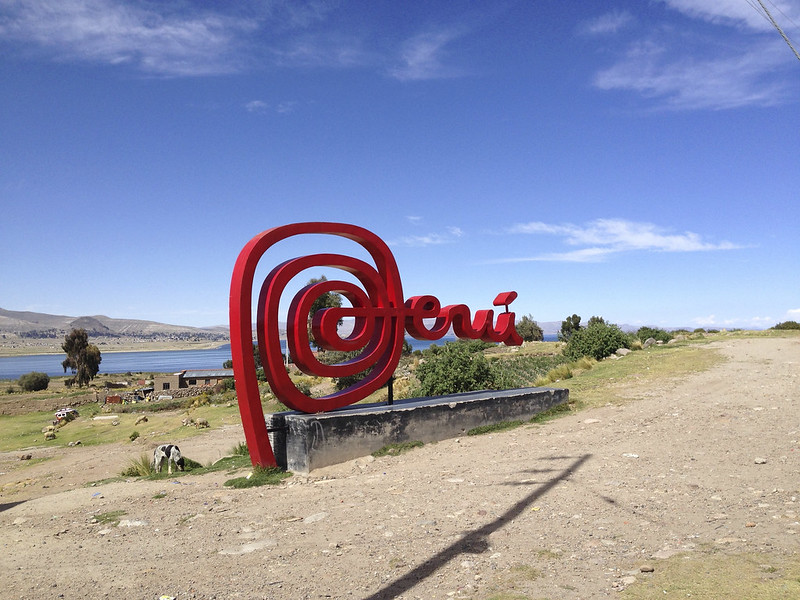
Doctorate and Master programs attract prospective students from all over the world: China, India, Turkey, Canada, South Korea, etc. In my entering electrical engineering cohort, I was the only Peruvian and Latin American. In my first year, I felt tiny compared to my peers who came from renowned universities and very competitive college degrees – that was my perception.
A few years before I started my Ph. D., a fellow from Universidad Nacional de Ingeniería (UNI) started his Ph. D. at Harvard University. “How did you get admitted to Harvard from Peru?” another Harvard graduate student asked this UNI fellow. Even now, I cannot understand what this other student’s opinion of Peru was. The story remained in my mind, feeding the “maybe they are right.” Feeding the perception.
Now, I am writing with confidence that Peruvian students are astounding as the top students from all over the world. I broke free from my initial perception.
I fed the perception by comparing myself against my classmate based on the different universities’ names and UNI. As soon as I step out of Peru, I immerse myself in a different reality where not everybody was a Peruvian or UNI student. The first time was in Colombia, and I did not feel too much discomfort, I thought: “well, we all are from Latin America, at least I can speak Spanish.” At Purdue University and McMaster University, fortunately, I had a few Peruvians from UNI around me, so I did not feel out of place. During the visit dates of graduate schools, I met students from top schools from all over the world, but I did not meet any other admitted Peruvian – after the excitement winded down, I felt alone. In September of 2015, at Princeton, all the big school names were around me. Even though UNI keeps its prestige in Lima – I became the Princeton Ph.D. student from an unknown university from Peru, which fed the perception.
I fed the perception by contrasting the number of people competing to get a spot in a university. For example, I learned that students from several Asian countries compete against millions of other students to get a university position. That intimidated me because I recall that the number of applicants to UNI in the years that I applied was around 10000. Throwing just numbers, comparing big to small did not help at all – there are many subtleties in the backgrounds of different people. Some students came from families in which several generations in their family are PhDs. Others had the complete reverse story. There are differences, a lot of differences. I felt intimidated by the numbers, and that fed the perception.
I broke free from the perception by being receptive to the external positive feedback. During my PhD the length of getting something done increased by quite a lot in comparison to undergraduate. So, I had to wait a few years to observe the delayed response of the effort of the initial years. Yet, not seeing progress was disheartening. By my third year I concluded that I was not made up for this. After 5 years of keeping at it – read not quitting the PhD – I can totally see how different I was from year to year when I compared to my old self – the only type of comparison is worth doing. Every year I started to accumulate small accomplishments and praise from the people around me. It became contradictory to think that I was utterly useless for this type of training if I kept receiving positive feedback about my progress from the big-name university students and professors. Then the only thing left was to get rid of the initial perception that I had developed during the first years because there was a significant conflict. I decided to trust the words that were coming out of other people’s mouths rather than my self-defeating thoughts – that is how I broke free from the perception.
Over the past five years, I was not the only one who kept making progress. Around me, different Peruvians, either in a Ph.D. or in other fields, were accumulating accomplishments. Now I am incredibly proud to say I am Peruvian in large part because there are amazing Peruvians out there, pouring all their efforts to move forward their journeys. I had friends that kept getting promoted or got hired in the top companies in the world, where again, you will find a plethora of different universities and countries. I found Peruvian friends landing faculty positions in top universities around the world. Universities where all the world is trying to compete to get a space. I could not sit with the thought that Peruvians are not up for the challenge. I saw all around me that Peruvians accomplished significant feats that people from developed countries and with so many more opportunities were trying to perform.
Now, dear great Peruvian, five years have passed. I feel confident in the things that I am good at. I went through a lot of self-doubt and struggle, but in the end, I was able to find confidence in the things that I do – slow and steady wins the race. I know I am not the only one who feels the same. Throughout a Ph.D., the Peruvian student overcomes difficulties and excels in their doings – I have seen it first hand. Now more than ever, I am very proud to have crossed paths with outstanding Peruvians at the top of their games. I feel comfort in knowing that a Peruvian can achieve as much as any other top person from any country in the world.
122 total views